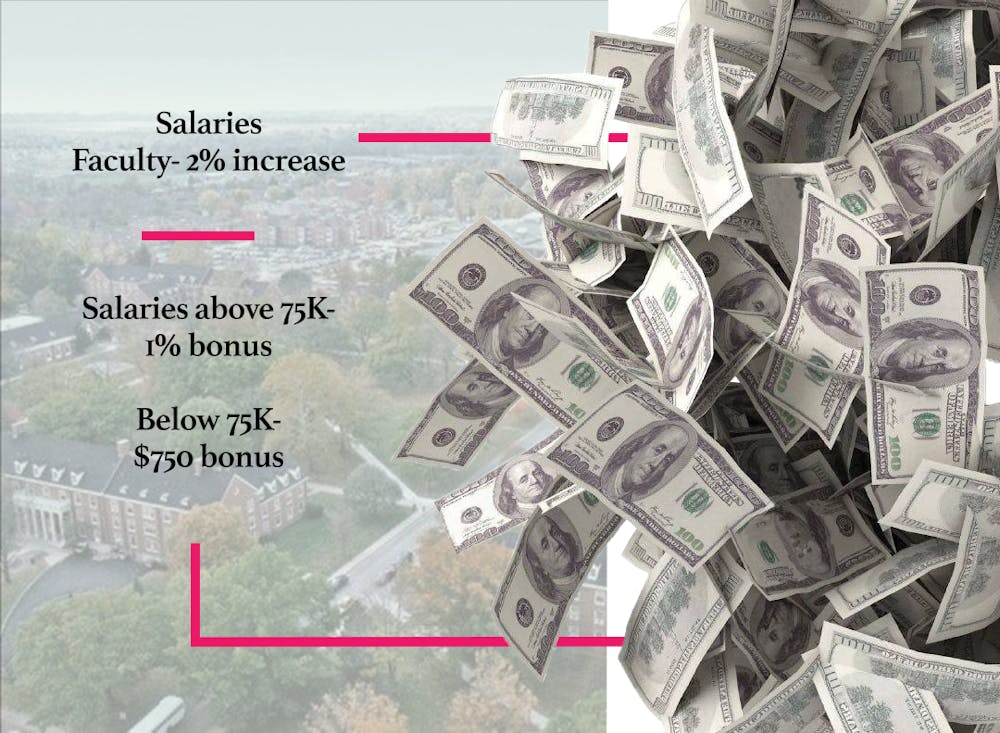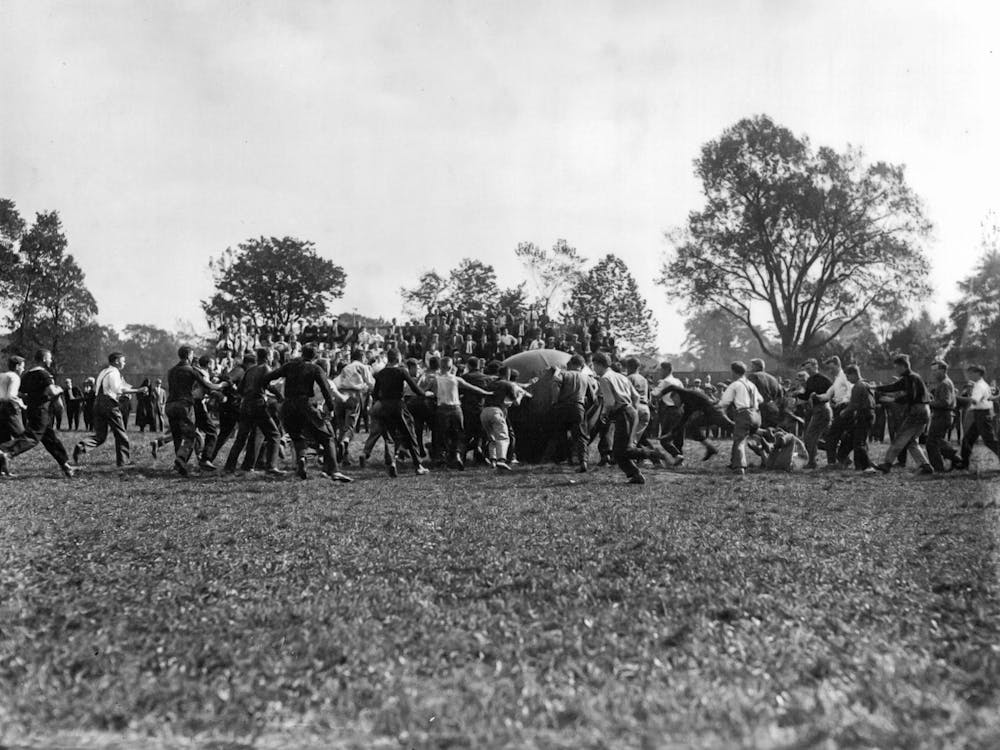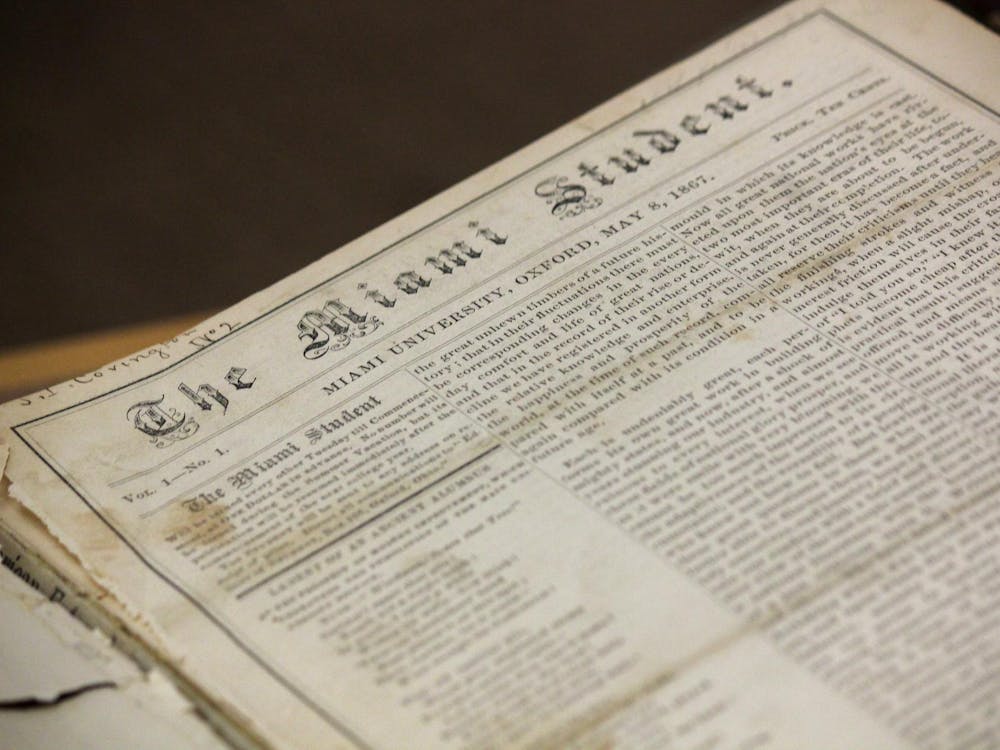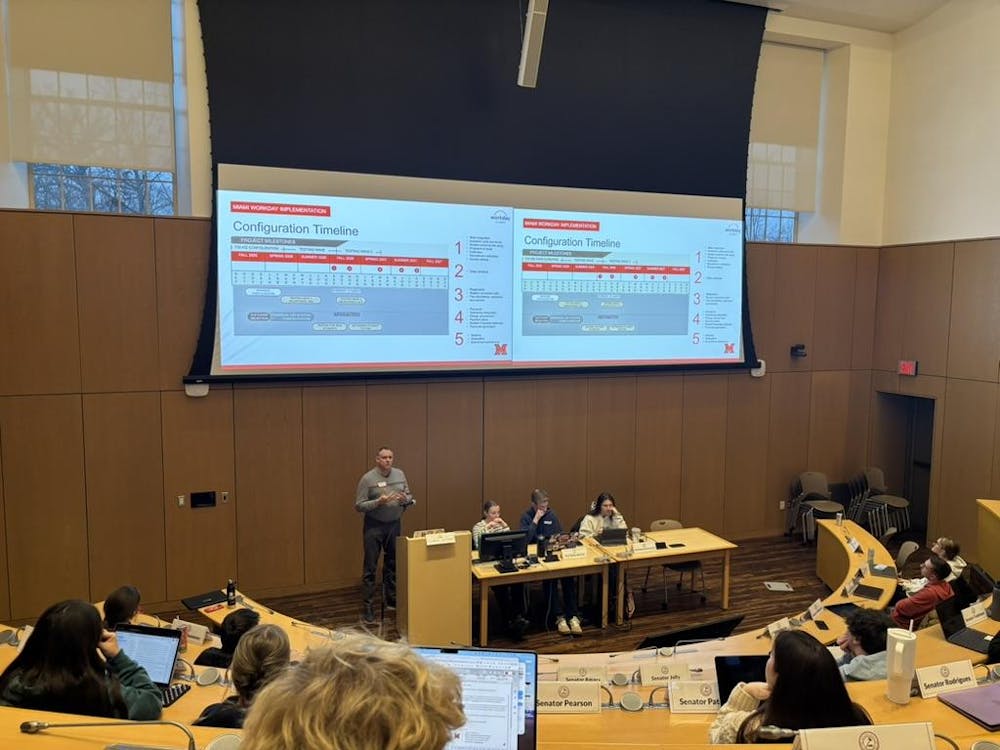Miami University faculty and staff will receive increased salaries and financial bonuses for the 2021-2022 academic year, as announced by university President Gregory Crawford in June.
Miami’s salary pool will increase by 2% this year, and full-time employees in an annual pay bracket above $75,000 will earn an additional 0ne-time payment equal to 1% of their salary. Bonuses for employees below that bracket will be $750. Crawford said part-time employees would also receive bonuses.
The payments are a reward for “the extraordinary work and tireless efforts of Miami’s employees throughout the pandemic,” Crawford wrote in his announcement.
The bonuses follow an especially trying year for Miami employees, who taught and worked in difficult circumstances without the help of colleagues who were let go in anticipation of the COVID-19 pandemic’s financial toll.
In March 2020, Miami refunded tens of millions of dollars to students for unrealized services like housing and meal plans at the start of the pandemic.
Over a year later, Crawford reported that the university is now “in a much stronger financial position.”
This is due in part to what Crawford called “difficult steps,” including layoffs of visiting assistant professors and other employees.
Miami also had additional sources of funding including federal assistance from the Coronavirus Aid, Relief, and Economic Security (CARES) Act and other emergency relief funding.
Ohio Governor Mike DeWine told universities to expect a 20% reduction in state funding due to the pandemic, but by the end of the year, he only cut funds by 4.5%.
Miami’s Senior Vice President for Finance and Business Services David Creamer said DeWine’s aid didn’t stop there.
“Before we ended the year, [DeWine] actually, through some of the CARES Act money, restored almost all of that cut,” Creamer said.
Unexpected rounds of funding were approved by Congress in December 2020 and March 2021.
Enjoy what you're reading?
Signup for our newsletter
Creamer said those funds helped patch losses caused by refunds and cover costs to test, quarantine, isolate and vaccinate students for COVID-19.
Crawford also credited the university’s financial position to “unexpectedly strong returns on [its] investments.”
“We had one of the strongest financial market performances this past year that we’ve seen in the last 30 years,” Creamer said.
He and Crawford credit those three pieces — investments, federal and state funding — with Miami’s ability to provide honorary payments.
Creamer said the university is still watching the virus closely in Oxford before expecting finances to make a full recovery.
“The year is so far off to a pretty good start,” Creamer said, “but we all remain concerned about the number of positive cases … We’re trying to prepare in case we see some outbreaks on campus to make sure we can manage that, but we’re certainly hopeful it’s going to be a more normal-looking year.”




